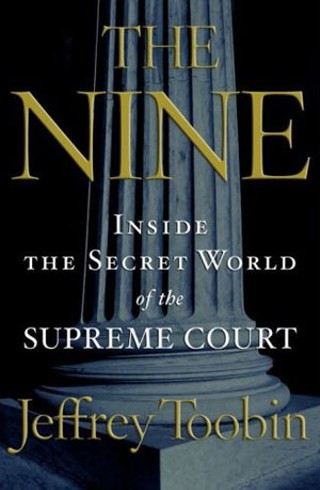Temples and Playgrounds
Previewing the 2007 Texas Book Festival, Nov. 3-4
By Jordan Smith, Fri., Nov. 2, 2007

The Nine: Inside the Secret World of the Supreme Court
by Jeffrey ToobinDoubleday, 340 pp., $27.95
In his new book, Jeffrey Toobin, former assistant U.S. attorney and current legal analyst for CNN and staff writer at The New Yorker, pulls back the red velvet curtain of the U.S. Supreme Court to reveal that the nine justices sitting on the nation's highest bench are simply a collection of smart, flawed people. That might not seem revelatory, but it is: This is a court of personality and of politics, perhaps more so than court tradition and ritual might lead you to believe. In part, the justices' relative silence in public life is rote and necessary. They don't sit down for chats with the press as a regular course of events (thankfully) and are, understandably, circumspect in their public speech. But that tends to leave an impression that the justices are actually "other," somehow removed from the people they serve – or, more accurately, the democracy they reflect. Toobin's book does away with this idea, revealing instead that the nine justices are very real and, in some cases unfortunately, too much like the rest of us: There are edgy and bombastic personalities, hubris, and true compassion here.
Most compelling is the book's portrait of Sandra Day O'Connor. The book offers fascinating insight into the old-school Arizona Republican, who prized her seat at the court's ideological center – and her longtime role as its swing vote in a vast number of important cases – but who grew increasingly disillusioned with the GOP as it hewed further and further to the right under the leadership of President George W. Bush. Indeed, as the book reaches its crescendo, O'Connor hands in her resignation (in 2005), in part to care for her husband, who was suffering from Alzheimer's, and in part in an effort to avoid a double vacancy on the court – her response to the terminally ill then-Chief Justice William Rehnquist's decision to hold on to his seat until the bitter end. In a bit of real-life drama, O'Connor's strategy fails, and she is resigned to seeing her moderate legacy capped by the nomination (and, ultimately, confirmation) to her seat of über-conservative federal appellate Judge Samuel Alito, the man whose opinion that women seeking abortion should be required to notify their husbands first O'Connor so roundly trounced in the landmark 1992 case Planned Parenthood v. Casey.
The "Court is a product of a democracy and represents, with sometimes chilling precision, the best and worst of the people," Toobin writes in closing. "We can expect nothing more, and nothing less, than the Court we deserve."
Sunday, Nov. 4, 11am
House Chamber








